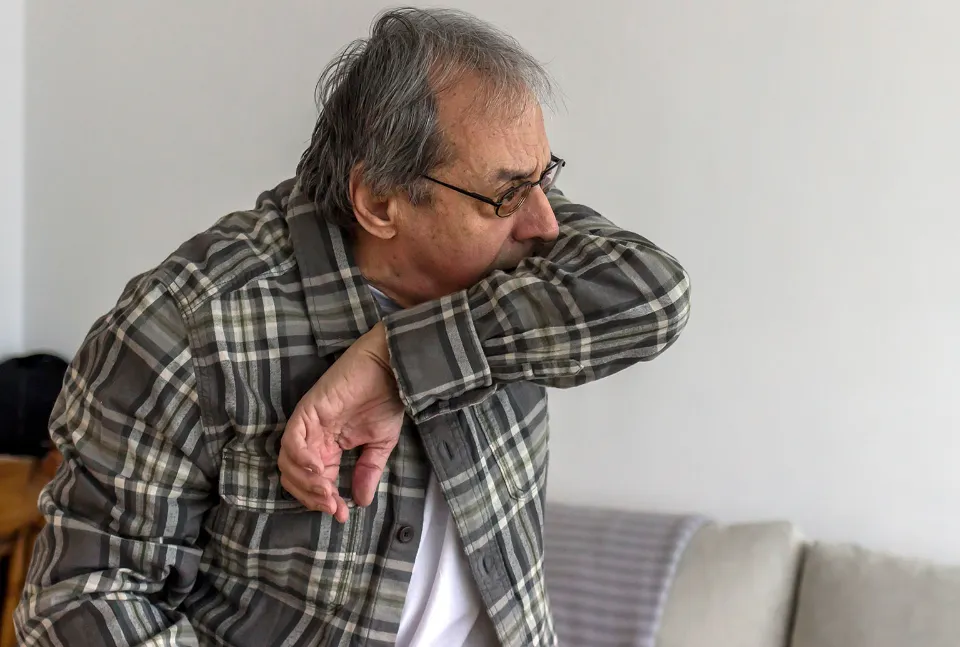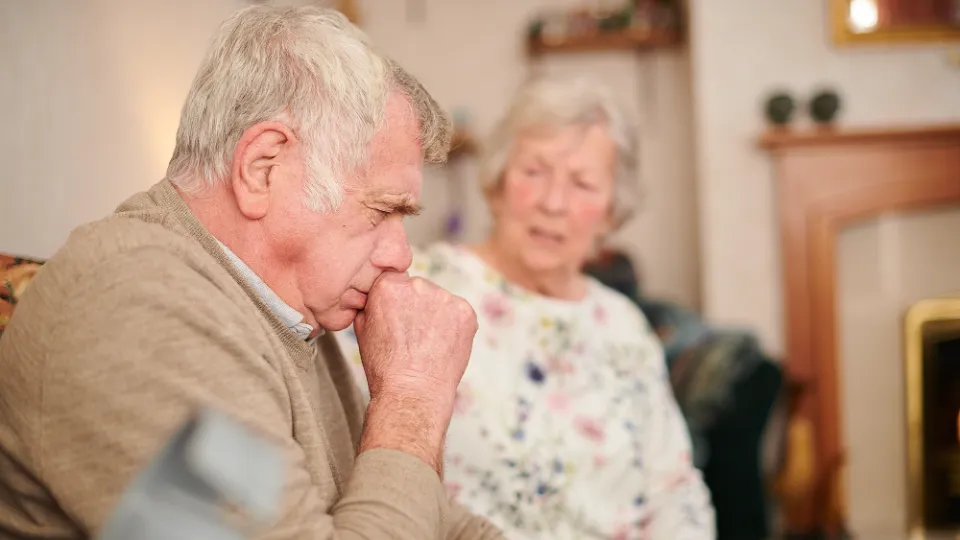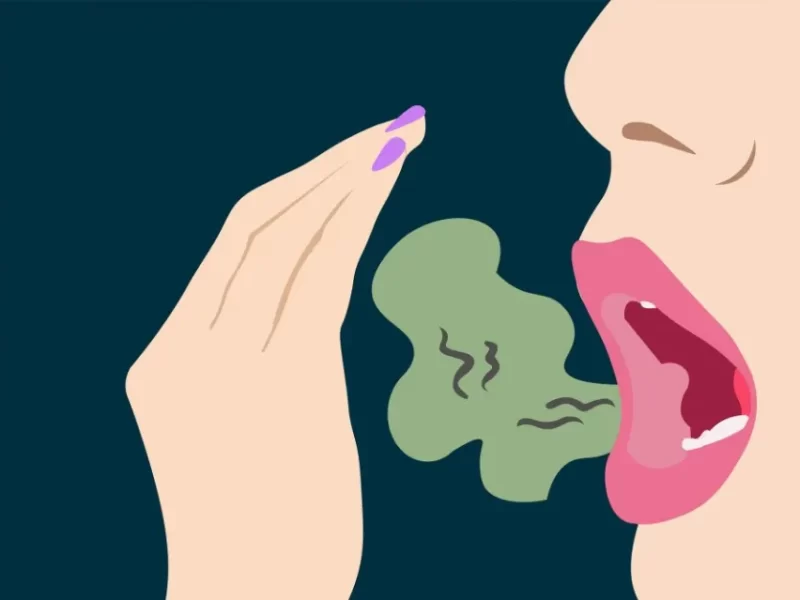Cough is among the most widespread medical conditions in the world, according to StatPearls.
In fact, coughing is the cause of about 30 million clinical visits each year in the US. Additionally, while a passing cough is common as it helps the lungs get rid of irritants, a chronic cough that lasts longer than eight weeks needs to be taken seriously as a health concern. This type of cough is considered to be “chronic” by health professionals, and it often occurs as a result of an underlying medical condition.
Senior citizens who cough often experience significant problems. Because they frequently have a higher risk of developing serious illnesses, older people in our society can suffer grave consequences from even seemingly unimportant health problems.
Now let’s explore the causes and signs of cough in seniors. Then, we’ll examine some of the therapies that can combat this all-too-common ailment.
Types of Coughing
Chronic Cough
Older adults frequently experience chronic coughs, which have numerous possible causes. Mucus builds up in your throat or sinuses as a result of postnasal drip, which is the most typical cause of chronic cough in aging adults. A sinus infection can also lead to smoking, being sensitive to air pollution, and having a persistent cough. Acid reflux disorder (GERD), asthma, and lung infections like pneumonia or tuberculosis are additional causes of chronic cough.

Dry Cough
Since all coughs are dry to some extent, the term “dry cough” may seem misleading. However, a dry cough results in little to no mucus production along with your cough. You can treat a dry cough at home by drinking lots of fluids and taking over-the-counter antihistamines because it is less likely to be caused by an infection than other types of coughs. Additionally, you can reduce your symptoms by installing a humidifier in your bedroom and inhaling steam to moisten your throat and nose.
Wet Cough
The most typical type of cough in elderly people is a wet, productive cough, which happens when fluid leaks from the lungs into the windpipe. Your throat and lower respiratory tract may become irritated and inflamed from this fluid, causing you to cough. Expect to cough up thick mucus that could be stained with blood when you have a wet cough. Due to an infection or something irritating your lungs, like cigarette smoke, the mucus typically has a green or yellow color.
Night Cough
Because their bodies are trying to rest rather than cough, older people frequently suffer from night coughs. However, for some people, a night cough may also be a sign of a more serious condition, such as lung cancer or asthma. According to WebMD, a night cough is brought on by phlegm and mucus becoming lodged in your throat and airways while you’re sleeping. Reach out to your doctor or head to your nearest urgent care facility right away if you’re experiencing night cough symptoms. It might indicate something much more serious than a dry throat.
Paroxysmal Cough
A paroxysmal cough is an abrupt, spasmodic cough that typically lasts less than 10 minutes. It can be brought on by an allergy or another physical condition, such as asthma or postnasal drip. A person with a paroxysmal cough may experience multiple coughing fits per day. The majority of these coughing fits happen at night or in the early evening when people are at ease and breathing normally.
Cough-Related Disease in the Elderly
A stuffy nose, wheezing, sore throat, hoarse voice, heartburn, and many other symptoms can be brought on by coughing. You might occasionally even feel mucus dripping from the back of your throat. Coughs can occasionally and in extreme circumstances even result in the production of blood.
The overall quality of life may be affected by chronic coughing. Constant coughing makes it difficult to sleep, which can result in physical exhaustion, headaches, and stomach pain. In addition, because your body produces less melatonin as you age, you are already more prone to insomnia. If these effects aren’t closely monitored, they could become worse.
Causes of Cough in the Elderly
Chronic coughing could be a symptom of minor concern—such as a common respiratory cold, acid reflux, or allergies—but it could also indicate a serious health concern such as:
- Acute bronchitis
- Chronic obstructive pulmonary disease (COPD)
- Congestive heart failure (cardiac cough)
This respiratory affliction could also occur with other symptoms, which may include:
- A runny or stuffy nose
- Postnasal drip
- Frequent throat clearing and sore throat
- Hoarseness
- Wheezing and shortness of breath
- Heartburn or a sour taste in your mouth
- Coughing up blood
Keeping track of additional respiratory symptoms is crucial for diagnosis and treatment because chronic coughing may be a sign of a variety of health issues. If a senior’s chronic cough lasts for more than a few weeks, is painful, causes sputum or blood to come up, interferes with sleep, or interferes with daily activities, they should get treatment.
It’s crucial to seek medical attention if you notice a persistent, labored cough in your elderly loved one because there are numerous reasons why seniors experience chronic coughing. Common causes of chronic cough for older adults are as follows:
- Acid reflux
- Asthma
- Tobacco
- Postnasal drip
How to Stop Constant Coughing in the Elderly?
Depending on the cause of a chronic cough, different treatments may be necessary. For instance, if you have acid reflux, a medication may be prescribed to reduce the amount of acid produced. You will need to take antibiotics in its place if the cause of the cough is bacterial or fungal.
To clear the respiratory tract in the absence of this, your doctor may prescribe particular cough medicines like antihistamines, corticosteroids, and antibiotics.
Non-Medicinal Treatments
Some natural remedies should be taken into consideration, even though medication may be required for many coughs.
For Wet Coughs
For example, plain warm water or a cup of tea can often relieve mild coughs brought on by irritation and mucus buildup.
This may also ease any chest pain the patient may be feeling as a result of their cough.
For Dry Coughs
Conversely, increased moisture in the air will typically help dry coughs. This is easily accomplished by using a humidifier, spending regular amounts of time leaning over a bowl of hot water with a towel covering the bowl and your head, or by taking a warm, steamy shower.
Preventing Diseases and Infections
The topic of cough and related infection treatments has been covered extensively so far. But we haven’t really talked much about prevention.

Preventing disease often comes down to a few basic things:
- Practicing good hygiene – The simplest piece of advice anyone could give is to wash your hands before and after eating. Despite its simplicity, it’s one of the most effective pieces of advice. Simple, tried-and-true techniques are effective at preventing disease, so there is no need for anyone to be overly concerned with their hygiene.
- Exercising – All adults are advised by the ACSM to engage in 150 minutes per week of physical activity with a moderate level of cardiovascular activity. This includes cycling, swimming, and running at a pace that causes exhaustion. Everyone should also make an effort to engage in resistance and flexibility training a few times per week. This might involve weightlifting, yoga, Pilates, and stretches.
- Eating a healthy diet – The majority of medical professionals concur that our plates should be piled high with vegetables, whole grains, high-quality protein, and a lot of fiber-rich foods, despite the fact that there are many different opinions on what makes for a healthy diet.
Accessing Health Care as a Senior
It makes sense for us to talk about eldercare since the focus of this article is cough in seniors. Eldercare is unfortunately not cheap, and as you get older, you might feel like you can’t afford to get good medical care. There are, however, ways to deal with this issue.
Patients in the US can apply for government health insurance. They must seek out a nearby Medicare provider who can provide a plan that is appropriate for their unique medical requirements. If you reside in the US, the following section might also be relevant to your circumstance.
Summary
Chronic coughing in the elderly can seriously compromise them if left untreated. A body that is at rest is propelled into motion at all hours of the day and night by the act of coughing, which automatically contracts muscles. A persistent cough may also be an indication of a more serious medical condition. Ignoring a persistent cough can eventually cause more damage due to disrupted sleep and potential rib fractures. Call your family doctor right away if an elderly member of your family develops a persistent cough that doesn’t get better.



